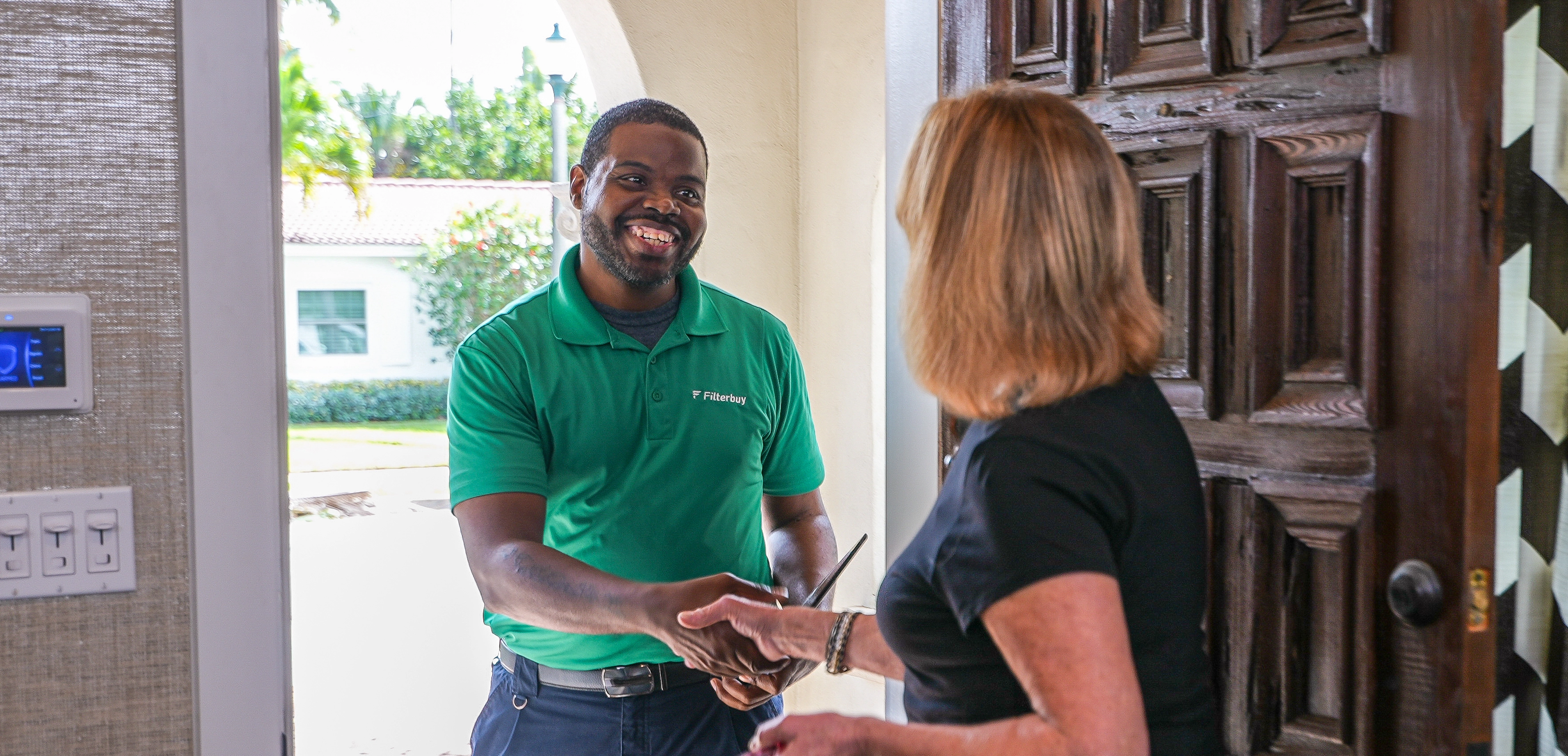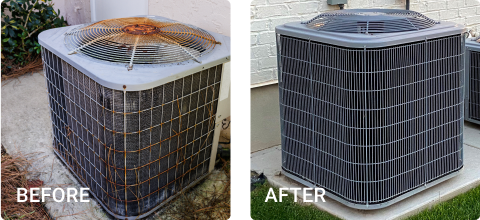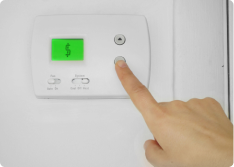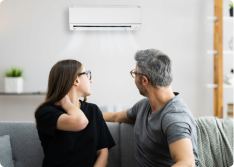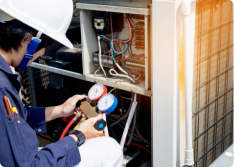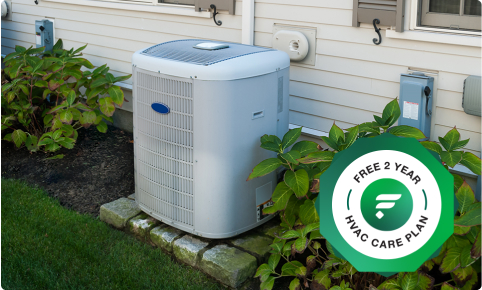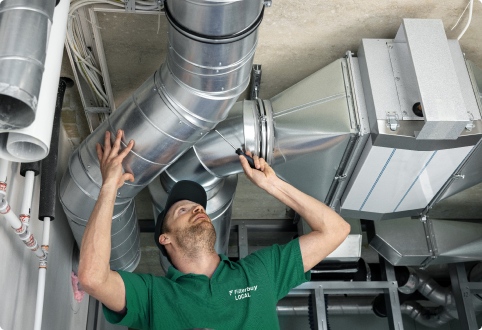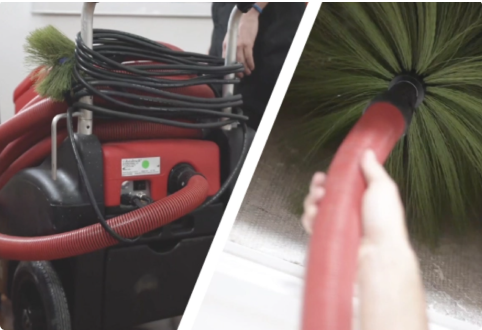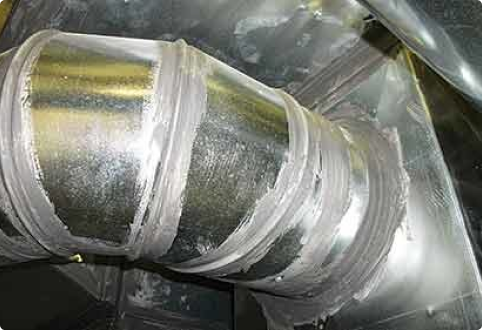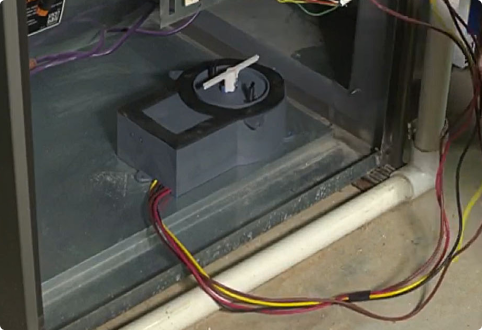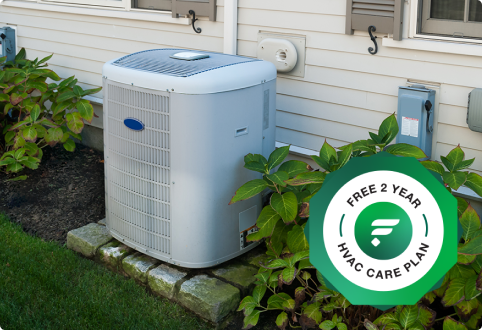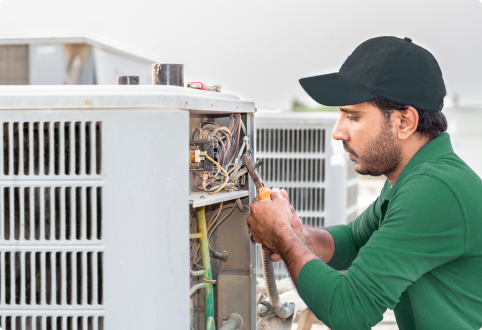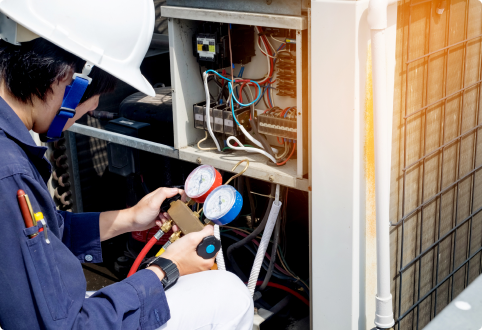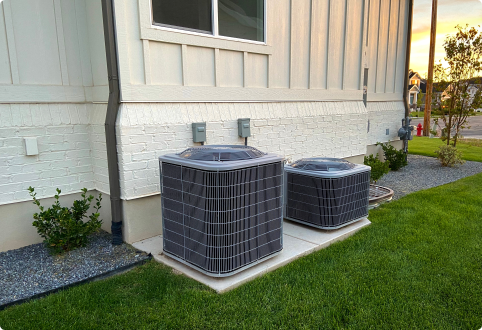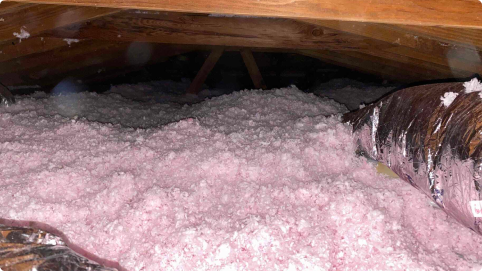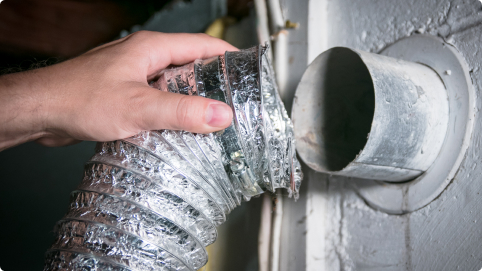Welcome to Filterbuy HVAC Solutions, the best HVAC system replacement service company proudly serving in and near the greater Fort Lauderdale, FL area. Please let us know how we can help solve your Fort Lauderdale HVAC system replacement needs with professional, affordable, and fast residential and commercial HVAC services by getting a free online quote or by giving our friendly HVAC specialists a call. We look forward to hearing from you!
HVAC Replacement Services Fort Lauderdale FL
The need for HVAC replacement services in Fort Lauderdale, FL is growing. As the city experiences an increase in population and development, so too does its need for adequate air conditioning systems to keep homes and businesses comfortable. To meet this demand, local contractors are offering a range of HVAC replacement services that guarantee comfort and energy efficiency throughout the year. This article will explore how these services work to provide homeowners with reliable heating and cooling solutions.
HVAC stands for Heating, Ventilation, and Air Conditioning - three essential elements of any climate control system. To ensure optimal performance from such a system, it must be regularly serviced and replaced when necessary. Homeowners may find themselves in need of HVAC replacement services when their current systems become outdated or have been damaged due to accidents or weather events. Local contractors are prepared to respond quickly to service requests and offer high-quality replacements that can last for years with minimal maintenance requirements.
In addition to providing brand-new units as part of their HVAC replacement services, many contractors also offer repair options designed to restore existing models to working conditions without needing full replacements. By taking advantage of both installation and repair options offered by experienced professionals, customers can enjoy modern air conditioning units while keeping costs low at the same time. This article will delve further into what makes quality HVAC replacement services such an attractive option in Fort Lauderdale, Florida today.
Benefits Of HVAC Replacement
HVAC (Heating, Ventilation, and Air Conditioning) systems are essential for providing a comfortable living environment in homes and businesses. Replacing an old or inefficient system can lead to improved energy efficiency, lower monthly bills, better air quality, increased comfort levels throughout the home or building, reduced noise pollution, and even enhanced resale value of buildings. One important factor when considering replacing an HVAC system is understanding the different types of systems available on the market today.
When selecting a new HVAC system it’s best practice to consult with experienced professionals who understand local climate conditions as well as which type of equipment may be most suitable for particular properties. It’s also important to consider factors such as size requirements based on the square footage of space being cooled or heated, installation costs associated with the removal of existing units, and additional features that one may want in their unit such as built-in humidifiers or digital thermostats. Taking into account all these variables helps create a tailored solution that meets individual needs and budgets.
Knowing what benefits come from installing a new HVAC system allows homeowners and business owners alike to make informed decisions about whether an upgrade is necessary at this time or if repairs might suffice until more funds become available for replacement. With so many options out there choosing the correct system requires research and expert advice; thankfully there are plenty of resources available to help guide individuals through the process. Moving forward then we will explore some of the different types of systems currently available on the market today.
Types Of Systems Available
Today, there are a variety of HVAC systems available on the market that offer different features and benefits. According to the US Department of Energy, heating and cooling account for around 56% of energy use in an average American home; making it one of the largest investments when considering cost savings associated with upgrading or replacing existing units. With this in mind, it’s important to weigh up all options before purchasing any new system.
The first type is known as forced air systems – these have become increasingly popular due to their reliability, efficiency, affordability, and versatility. They work by circulating cooled or heated air throughout homes or businesses via ductwork installed within walls or ceilings. This option requires minimal maintenance and offers more flexibility than other types such as boilers which require dedicated radiators for hot water circulation throughout buildings. The second type is known as split-systems – these involve two components - an outdoor unit where condenser coils convert refrigerant into cool air while indoors a blower fan distributes the air through vents located in rooms across properties.
Finally, mini-split systems do not require duct installation but instead feature several small indoor wall-mounted units each connected to an outside compressor unit via lines carrying refrigerant gas between them both. This means no loss of conditioned air inside homes due to poorly sealed joints found in traditional ducted systems; thus creating better overall temperature control and leading to improved comfort levels within living spaces.
As can be seen, there are plenty of options out there depending on individual needs and requirements; now let us take a look at some cost considerations when deciding whether replacement is necessary over repair works or upgrades.
Cost Considerations
When considering the cost of replacing an HVAC system, there are numerous factors to take into account. The size and type of building, energy efficiency ratings, and age of equipment all need to be taken into consideration when assessing the total costs associated with a replacement job. It is also important to research local regulations as these may impact installation fees in certain areas; for example, some states have specific guidelines regarding minimum requirements for air conditioning systems within commercial buildings. Additionally, labor costs can vary depending on the technician employed – certified professionals tend to charge more than non-certified workers but offer higher quality services overall.
The best way to determine how much a new system will cost is by obtaining quotes from several different providers and comparing prices between them before making any decisions. This process should include factoring in not only purchase and installation expenses but also potential savings that could be made through improved energy efficiency over time due to updated technology found in newer units. Furthermore, tax credits or rebates offered by utilities may help reduce initial outlay significantly when purchasing high-efficiency models.
A thorough evaluation of existing hardware along with a clear understanding of budget constraints should enable homeowners or business owners alike to make informed choices about whether repair works or upgrades are sufficient or if complete replacement is necessary for their situation.
Finding A Reputable Service Provider
Finding a reliable and experienced HVAC service provider is essential for ensuring quality workmanship and achieving the desired results. When searching for contractors, it is important to investigate their qualifications, certifications, experience level, and references to make an informed decision. The local Better Business Bureau can be consulted to check whether any formal complaints have been filed against potential providers; this may help minimize the risk of receiving substandard services or being subjected to unethical sales tactics.
It is also recommended that prospective customers ask several different for quotes on installation costs as well as maintenance contracts if applicable – these should include details such as labor rates, warranties, and payment terms so that comparisons can easily be made between them. Furthermore, some businesses offer special discounts when multiple items are purchased together; researching all available options beforehand will enable buyers to make more cost-effective decisions over the long term.
Once a suitable contractor has been identified, it is necessary to arrange a site visit for them to assess existing systems and evaluate the overall scope of the job before providing detailed proposals with accurate estimates of the time frames required for completion.
Factors Affecting Installation Time
Installation time for HVAC replacement services can vary significantly depending on the individual circumstances of each home or business. Several factors can affect this, including:
1) The size and complexity of existing systems;
2) Any additional components required such as ductwork or extra wiring; and
3) Whether any structural modifications need to be made to accommodate new equipment.
In addition, customers need to consider how long they expect their system to last before considering an upgrade. New models with higher energy efficiency ratings may require more extensive installation processes but will usually result in cost savings over the long term due to lower running costs. It is essential therefore that buyers evaluate these ratings carefully when selecting a product to ensure maximum value for money from the investment.
Having considered all relevant aspects, customers should then arrange a suitable time frame with their chosen contractor before beginning work so that expectations regarding completion dates can be properly managed.
Evaluating Energy Efficiency Ratings
As homeowners and business owners, we must understand the energy efficiency ratings of any HVAC system before deciding on its replacement. This rating can have a significant impact on future costs in terms of running expenses, so taking the time to research available options thoroughly will be worth it in the long run.
To begin with, customers should evaluate the Seasonal Energy Efficiency Ratio (SEER) of each model they consider; this number indicates how much cooling power can be provided per unit of electricity used. The higher the SEER rating, the more efficient the system will be and therefore the lower your bills could potentially become over time. Additionally, other factors such as noise levels and indoor air quality should also be taken into consideration when weighing up different models.
Finally, customers may wish to speak directly with installers or industry experts for advice based on their individual needs. They are best placed to provide an honest assessment regarding which products offer both value-for-money and optimal performance depending upon usage requirements and budget constraints.
Maintenance Services Offered
Once customers have chosen the right HVAC system for their needs, it is important to ensure that regular maintenance services are offered. This will help keep the unit running at its peak performance and reduce any potential problems down the line.
The most common type of service required for an HVAC system is filter changes and cleaning; this should be done every month or as per manufacturer instructions to maintain optimal airflow. In addition, technicians may also inspect wiring connections and examine components such as belts, motors, and coils for signs of wear or damage. Furthermore, they can identify leaks or other issues which could lead to costly repairs if left unchecked.
Most reputable provide these types of services at reasonable costs with discounts available when purchasing extended contracts. Customers should always ask about any warranty coverage before signing up so they know exactly what is included in case something goes wrong.
Warranties And Guarantees
It is also important to consider warranties and guarantees when choosing an HVAC system or replacement service. Many offer extended warranties that will cover both labor costs and parts in the event of a breakdown due to normal wear and tear. These types of warranties can be very valuable, as they protect costly repairs should something go wrong with the unit. Additionally, some may also offer money-back guarantees if the customer is not satisfied with the installation or repair services provided.
When researching potential providers for HVAC replacement services, customers should always inquire about any additional coverage available for their specific needs. This information can help them make sure that they are getting the best value possible from their purchase and ensure peace of mind by knowing that their investment is protected.
The next step in selecting an HVAC system or contractor is to evaluate local climate conditions which could affect performance and energy efficiency ratings.
Local Climate Conditions To Consider
Many people may hesitate to invest in professional HVAC replacement services due to the cost associated with them. However, it is important to consider that climate conditions can greatly affect how well an air conditioning system works and its energy efficiency ratings. As such, hiring a professional who can evaluate local weather patterns and provide guidance on what type of unit would work best for your home or business could potentially save you money in the long run.
The first step when evaluating potential providers should be determining their experience level with similar climate-related issues. Ask questions about their knowledge of local weather patterns and whether they are familiar with any extreme temperatures or humidity levels that might affect performance. Find out if they have ever encountered and addressed problems related to these conditions before. Experienced professionals will know exactly what kind of considerations need to be taken into account when selecting units based on current and anticipated climate trends, ensuring optimal performance.
It's also helpful to inquire as to what specific steps they take regarding maintenance after the installation has been completed. A reputable contractor should offer regular checkups and tune-ups along with additional support should anything go wrong over time. This provides peace of mind knowing that you won't be stuck dealing with unexpected repairs down the line because all potential issues were properly handled from the beginning.
By researching local providers thoroughly before making a purchase decision, customers can rest assured that their investment is soundly backed by experienced technicians who understand the unique needs associated with changing climates around Fort Lauderdale, Florida.
Advantages Of Professional Installation
In addition to the climate-related considerations, it is important to understand the advantages of professional installation when considering HVAC replacement services in Fort Lauderdale. Professional technicians are equipped with specialized tools and knowledge that allow them to properly diagnose issues, test equipment, and complete efficient installations. This can help ensure that any new unit meets all safety standards as well as provide optimal performance for years to come.
Furthermore, a reliable technician will have access to parts from reputable brands which may improve overall energy efficiency ratings or provide additional features not available on generic models. For example, some units feature humidity sensors that adjust fan speed based on readings allowing for more comfortable conditions throughout your property. Having an experienced contractor install these components correctly will maximize their effectiveness and reduce the risk of damage due to improper connections or incorrect wiring.
Overall, investing in professional HVAC replacement services provides numerous benefits beyond just convenience alone. Working with an experienced provider who fully understands local weather patterns and how they impact air conditioning systems offers peace of mind knowing that you’re getting quality results backed by knowledgeable staff and superior products.
Frequently Asked Questions
What Is The Estimated LifeSpan Of An HVAC System?
It is important to understand the expected lifespan of an HVAC system, to make sure that it runs properly and efficiently for as long as possible. How long should a homeowner expect their heating and cooling unit to last? While many variables will affect the total lifespan of any given unit, on average homeowners can anticipate between 10-15 years from a quality HVAC system.
The age and condition of the home itself must also be taken into consideration; if it has not been updated since its construction or if it was built with poor materials then this could cause significant damage to the HVAC system over time. Additionally, improper maintenance or lack thereof can drastically reduce the life expectancy of an HVAC unit. Homeowners need to ensure they schedule regular checkups and cleanings by qualified professionals who specialize in servicing these systems so that small issues do not become large, expensive problems down the line.
Homeowners may want to consider investing in additional features such as air purification systems or humidity controls which can improve efficiency while extending life spans even further provided they are installed correctly and maintained regularly. In addition, researching energy-efficient models can save money on utility bills while providing reliable temperature control year-round. Taking all these factors into account when buying an HVAC system helps maximize value over time.
Are There Any Special Considerations For Installing An HVAC System In A Condo?
Installing an HVAC system in a condo presents several unique challenges that must be taken into account. Condos are often multi-story buildings, and the size of these dwellings can make it difficult to install proper ventilation systems. In addition, there may be restrictions from local authorities or building regulations regarding the types of materials used for installation, as well as noise levels generated by operating equipment. Furthermore, many condos have limited space allocated for mechanical systems such as heating and cooling units, which could limit the type of unit installed.
The estimated lifespan of an HVAC system also varies depending on the type and model chosen. Many manufacturers offer warranties ranging anywhere from five to ten years on their products; however, this is only applicable if regular maintenance is performed according to best practices outlined in manufacturer instructions. Additionally, environmental factors such as extreme weather conditions or exposure to corrosive elements over time can significantly reduce the lifespan of any given system.
For all these reasons, special considerations should always be made when installing an HVAC system in a condo setting. Professional technicians with experience working on similar projects should be consulted before initiating any installation project since they will possess specialized knowledge about local building codes, environment limitations, and other key details necessary for the successful completion of the task at hand.
Are There Any Tax Credits Available For HVAC System Replacement?
Replacing an HVAC system can be a costly expense, so homeowners need to research any potential tax credits available. Tax credits are commonly offered by local and national governments as incentives for energy efficiency upgrades. They may range from 10-50% of the cost of the installation depending on various factors such as the type of system being installed and the region in which the homeowner resides.
To understand what types of tax credits are available, conducting research on government websites or speaking with a professional financial advisor is recommended. In addition to researching state and federal programs, a homeowner should also inquire about their utility company’s offerings since some firms offer rebates for installing certain systems.
The amount received through these credits depends upon several variables that could include how much money was spent on materials and labor, when the purchase occurred, what size unit was purchased, and where it was installed. It is important to note that many states have varying regulations regarding eligibility requirements; therefore it is essential to review all paperwork before signing a contract or submitting applications for tax credit reimbursement.
Are There Any Additional Costs Associated With HVAC System Installation?
An HVAC system installation can be a long and arduous task, especially since there is so much that goes into it. Much like sailing the seven seas in an ancient wooden vessel, all of the intricacies must be accounted for before any progress can be made. Before undertaking such a journey, one should consider if there are any additional costs associated with HVAC system installation:
1) Installation fees - This fee covers labor costs, as well as materials used to install the unit.
2) Permits and Inspections - Depending on local codes and regulations, permits may need to be obtained to legally operate the new equipment. Additionally, inspections by qualified personnel might also be required before operation.
3) Replacement parts - In some cases, existing components of the building's structure may need to be altered or replaced completely for the new unit to fit properly.
4) Disposal Fees - A reputable contractor will typically offer disposal services for old units at an additional cost due to hazardous material involved and/or necessary transportation requirements.
It is important for homeowners to thoroughly discuss these issues with contractors during their initial consultation so that they understand all potential risks and expenses beforehand. Furthermore, understanding what types of warranties are available from third parties could save headaches down the road should service ever become necessary. Ultimately, being prepared ahead of time ensures a successful transition when replacing an existing HVAC system.
Is There A Standard Time Frame For HVAC System Installation?
HVAC systems are an important part of modern buildings, providing heating and cooling to maintain a comfortable environment. As such, their installation is something that homeowners need to consider when considering home improvement projects. One question many people have is what the standard time frame for installing such a system might be.
The answer to this question depends on several factors, including the complexity of the system being installed and any specific requirements related to local building codes or regulations. Generally speaking, however, most installations can take between two days and up to five weeks. This includes both the physical installation process as well as any additional wiring or connection required by the HVAC unit itself.
In addition, it's important to remember that even after all work has been completed, there may still be some follow-up tasks involved in getting the new system up and running properly. These could include checking connections and making sure everything functions correctly before finalizing the job. All these steps can add extra time to an otherwise straightforward installation project.
Overall then, while it's difficult to give a precise estimate without knowing more details about each case, it is generally safe to say that most HVAC installations should fall somewhere between two days and five weeks from start to finish once all necessary components have been acquired.
What Does a New HVAC System Cost in Florida?
The cost of installing a new HVAC system in Florida is a topic of significant concern for many homeowners and businesses, as it represents a substantial investment. This cost can vary widely depending on various factors, such as the type of system, the size of the property, the system's efficiency rating, and the specific contractor's pricing. This conversation aims to provide a comprehensive overview of these factors and how they contribute to the final cost. By gaining a deeper understanding of these variables, one can make a more informed decision when it comes to HVAC system installation. However, bear in mind that while cost is important, it is not the sole determinant of an HVAC system's value or suitability for your needs.
A thorough comprehension of the costs associated with a new HVAC system in Florida is crucial for informed decision-making regarding your home comfort solutions. There are two key considerations: installation expenses and energy efficiency. The former refers to the outright cost of the system and its setup, while the latter involves ongoing operational costs, which can significantly impact your monthly bills.
Do You Need a Permit for HVAC Replacement in Florida?
Navigating the regulatory landscape surrounding HVAC replacement in Florida can be a complex task, particularly when it comes to understanding permit requirements. The question of whether or not a permit is necessary for such a replacement is a pertinent one, and the answer is not as straightforward as it might initially seem. This primarily hinges on a variety of factors, including the nature of the replacement, the specific local ordinances in place, and the extent of the work to be carried out.
Florida's HVAC permit regulations require a keen understanding of the state's specific requirements and procedures. The permit acquisition process involves several steps, from application submission to final approval. Regulatory implications can cause significant delays if not properly addressed, underscoring the importance of comprehensive knowledge and careful navigation of these complex guidelines.
What Is the Average Life of an HVAC System in Florida?
The lifespan of an HVAC system, particularly in the unique subtropical climate of Florida, is a topic of significant interest to homeowners, property managers, and HVAC professionals alike. Factors such as maintenance, usage patterns, and regional weather conditions play a considerable role in determining how long these systems can efficiently function. While it's well established that the average lifespan of an HVAC system nationwide ranges from 15-20 years, the question remains: Does this average hold in Florida with its specific environmental conditions?
To comprehend the average lifespan of an HVAC system in Florida, one must consider several key factors that can influence its longevity. The climate impact, with the state's high humidity and heat, can be harsh on HVAC systems. Additionally, maintenance frequency plays a substantial role; regular, proactive servicing can significantly extend a system's life. Understanding these elements can aid in estimating an HVAC system's lifespan.
Is Now a Good Time to Replace the HVAC?
The timely replacement of heating, ventilation, and air conditioning (HVAC) systems is one of the most important yet frequently neglected topics in property ownership and management. The decision to replace these integral systems is typically a considerable financial investment, and as such, it requires careful deliberation. There are several factors to consider, such as the age of the current system, its overall performance, and the potential energy savings a new system might offer. With evolving technology and the increasing demand for energy-efficient homes, it raises the question: is now the practical moment to replace your HVAC system?
To fully grasp whether it's time to replace your HVAC system, it's crucial to understand its typical lifespan and the factors that can influence it. Lifespan factors, such as manufacturing quality and usage patterns, play a significant role. Equally important is the maintenance impact; regular, professional tune-ups can extend the system's life, delaying the need for a potentially costly replacement.
What Is the Most Common HVAC System in Florida?
In the diverse and often challenging climate of Florida, the selection of an appropriate HVAC system is a subject of significant importance for homeowners and businesses alike. As we explore this topic, we'll consider a variety of factors, including the state's unique climate conditions, energy efficiency standards, and the different types of HVAC systems available on the market. With an array of systems from which to choose, one may wonder, what is the most common HVAC system utilized in the Sunshine State? The answer to this question might be more complex than initially expected, holding numerous implications for both personal comfort and energy consumption.
Diving into Florida's HVAC preferences, it becomes evident that the state's climate and weather conditions significantly influence the choice of HVAC systems. The humid subtropical climate necessitates robust, energy-efficient options. Thus, the climate impact on HVAC in Florida steers residents towards systems that provide optimal cooling while also being energy-conscious, to combat high temperatures and humidity.
How Much Does It Cost to Replace Ductwork in Florida?
The cost to replace ductwork in a home or business can vary greatly, especially within different regions such as the state of Florida. A multitude of factors play into this cost, including the size of the structure, the complexity of the existing duct system, and the specific requirements of the new ductwork. While it may be tempting to seek a quick and straightforward figure, the reality is that the process is far more nuanced. This discussion aims to provide a comprehensive understanding of what drives these costs and how they may apply to your specific situation, inviting a deeper exploration into the intricacies of ductwork replacement costs in Florida.
Navigating the financial landscape of ductwork replacement costs necessitates a clear understanding of the various factors that influence the overall expenditure. Cost factors such as the size of the system, material quality, and labor rates significantly impact the total cost. Likewise, different replacement methods - full or partial - can drastically affect the price. Therefore, informed decision-making is vital to managing these costs effectively.
Can a Homeowner Install HVAC in Florida?
When it comes to home improvements, a common question that emerges from Florida homeowners pertains to the installation of HVAC systems. Specifically, they often wonder whether they can undertake this task themselves or if they are required to enlist the services of a licensed professional. The answer is not as straightforward as the question might suggest, considering the intricate nature of HVAC systems and the varying regulations specific to the state of Florida. Furthermore, understanding the potential risks and benefits associated with each approach is paramount to making informed decisions.
Understanding Florida's unique laws is crucial when it comes to HVAC installation because they establish the requirements and standards for this vital home appliance. Interpreting these regulations correctly is crucial. Furthermore, understanding the license requirements is imperative as it ensures compliance, thereby preventing any legal complications. In essence, thorough knowledge of Florida's HVAC regulations guarantees a smooth installation process.
What Are the HVAC Regulations for 2023 in Florida?
There are noteworthy changes in the HVAC regulations in Florida that are set to take effect. These revisions have significant implications for both HVAC professionals and property owners in the region. While some of these changes are designed to enhance efficiency and sustainability, others aim to improve safety standards and the quality of service. All stakeholders need to understand these changes and their potential impact.
In 2023, Florida's HVAC industry is poised for significant regulatory changes, marking a crucial shift in the operating landscape. These impending regulations demand a reevaluation of current practices and the establishment of new compliance strategies. Businesses must swiftly adapt to ensure adherence and competitiveness, necessitating a transformation in their operations to align with these pivotal regulatory shifts.
Can a Homeowner Pull an AC Permit in Florida?
In the state of Florida, the process of securing an Air Conditioning (AC) permit tends to be a complex and often debated subject, particularly when considering the role of the homeowner in this. The question at hand is whether a homeowner can personally obtain an AC permit, a matter that intertwines with local building regulations and safety standards. This discussion will aim to shed light on the nuances of Florida's AC permit laws, the potential implications for homeowners, and the resultant effects on the broader home improvement industry. Is it possible for a homeowner to handle this maze of regulations on their own, or is it better to leave it to the experts?
Navigating the intricacies of Florida's AC permit laws is an essential step for any homeowner planning to install or significantly modify their air conditioning systems. The permitting process involves detailed scrutiny of AC installation rules to ensure compliance with safety and efficiency standards. Understanding these rules can mitigate potential legal complications and ensure a smooth installation process.
Should You Replace 20-Year-Old HVAC?
Deciding whether to replace a two-decade-old HVAC system warrants careful consideration due to the inevitable decline in efficiency and output quality over time. While these systems might continue functioning beyond the twenty-year mark, the associated drawbacks, such as increased energy costs and diminished indoor comfort, need to be weighed. However, the decision to replace is subtle, requiring a balanced evaluation of factors like performance, maintenance history, and current energy efficiency.
To accurately determine the need for a replacement, the first crucial step is to accurately assess the age of your existing HVAC system. A comprehensive lifecycle analysis will provide insight into the system's performance decline over time. This will aid in making an informed decision about whether a replacement is necessary or if maintenance can prolong the system's functionality.
Can an HVAC Unit Last 30 Years?
The longevity of an HVAC unit is a significant concern for homeowners and property managers, as these systems represent a substantial investment in maintaining comfortable indoor temperatures. Some may wonder, can an HVAC system truly last for three decades? While many factors contribute to an HVAC unit's lifespan, such as its design, quality of installation, usage patterns, and maintenance routines, it's worth exploring this question in-depth.
To fully understand the longevity of an HVAC unit, it's necessary to understand that the lifespan of these systems largely depends on several factors, such as maintenance, usage, and the quality of the initial installation. Lifespan factors and the impact of maintenance play a significant role in determining the unit's lifespan, with regular maintenance often prolonging the operational years of the HVAC unit.
Can HVAC Last 40 Years?
Professionals in the field have been debating the longevity and durability of HVAC systems for quite some time. A central question often asked is whether or not an HVAC system can last up to 40 years. Various factors can influence the lifespan of an HVAC unit, including the quality of the initial installation, the consistency of maintenance, and the overall usage patterns. It is a complex issue, with different experts offering varying perspectives. While some may argue that a well-maintained system can indeed last four decades, others contend that advancing technology and evolving standards of efficiency make such longevity not only unlikely but undesirable.
One must understand that the lifespan of an HVAC system hinges on a multitude of factors, including maintenance, usage, and the quality of the initial installation. System maintenance is crucial for prolonging an HVAC's functionality. However, other lifespan factors, such as the unit's usage frequency and the quality of its first installation, also play a significant role in its durability.
Here is the nearest branch location serving the Fort Lauderdale area…
Filterbuy HVAC Solutions - Miami FL
1300 S Miami Ave Unit 4806, Miami, FL 33130
(305) 306-5027
https://maps.app.goo.gl/XDTMcEGZ1vdktKqJ6

.webp)
.webp)
.webp)
.webp)






